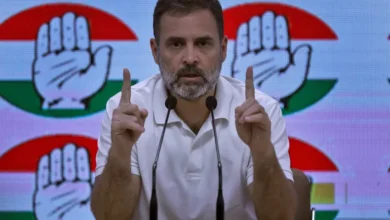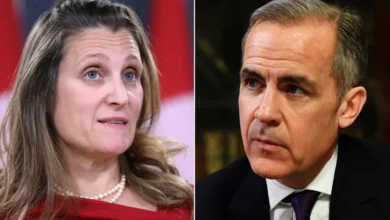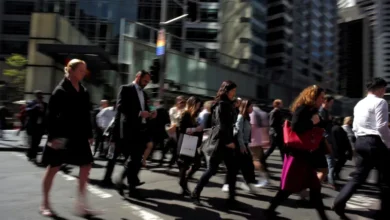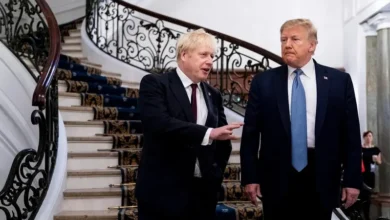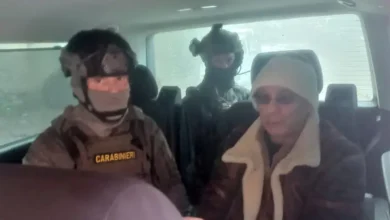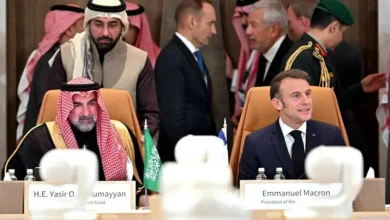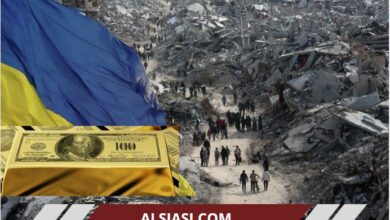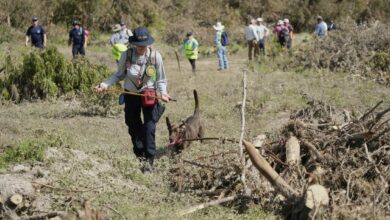‘Ready to die’: Protesters face bullets for political change in Mozambique
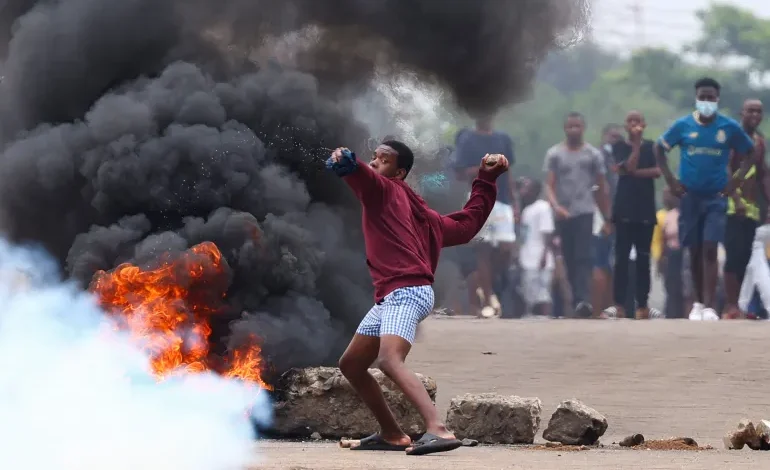
Rights activist Cidia Chissungo has spent the last few days poring over images she never thought she’d see in Mozambique: Young men with bloodied bodies pockmarked with bullet wounds; teenagers with eyes swollen shut from being hit with tear gas canisters by the Mozambican police.
Chissungo, 28, who is documenting the scale of ongoing post-election violence that broke out last week, says the images of dead and injured people circulating online have caused her to lose sleep.
“There’s a 16-year-old guy who was shot in the mouth, and his mouth was completely destroyed,” Chissungo told Al Jazeera. “There’s just a hole where his mouth was. Every time I close my eyes, I have that image in my head.”
It’s just one gory example of how young Mozambicans are paying a deadly price as the country faces some of the worst violence to follow an election. Clashes first broke out last Monday after police opened fire on supporters of 50-year-old opposition candidate Venancio Mondlane. By Friday, at least 11 people had been killed, many others injured – including a policeman – and about 400 people detained, according to Human Rights Watch.
On Thursday, thousands of protesters are expected to again take to the streets in protest in Maputo, the capital, and other cities, ignoring calls by outgoing President Filipe Nyusi to stay home.Demonstrators are angry at the results of the October 9 elections that saw the long-ruling Frelimo (Mozambique Liberation Front) party candidate Daniel Chapo sweep the polls, while Mondlane, a favourite among young people, came a distant second. The opposition alleges votes were rigged, and election observers also noted some irregularities.
The brutal killings of two of Mondlane’s close associates last Saturday have also incensed supporters. Although he ran as an independent candidate, Mondlane is backed by the extra-parliamentary group, The Optimist Party for the Development of Mozambique, abbreviated as Podemos.
Calm was just returning to Maputo and other cities this week. Although evidence of the chaos was still glaring in a burned police station, looted businesses downtown, burned tyres scattered on the roads, and ripped election billboards, people went out to work on Monday.
However, on Wednesday night, in a Facebook livestream, Mondlane called for another round of protests starting Thursday. In Maputo, young people gathered in groups, watching Mondlane on their phones, and chanting “Vamos, Vamos!” – meaning “let’s go”.
Ballot stuffing and ghost voters
Many of Mozambique’s youth – who make up two-thirds of the 35 million population – saw October 9 as an opportunity to do away with Frelimo. The party has ruled the country since it wrested independence from colonial ruler Portugal in 1975 after a bloody uprising. It then fought a civil war with the opposition Renamo party (Mozambican National Resistance) between 1977 and 1992.
However, young Mozambicans say Frelimo’s reputation as a liberation party makes no impression on them, and its legacy is now deeply buried under years of economic decline, corruption, high levels of unemployment, and an armed conflict in the north, despite the country’s touristic beauty and abundant gas reserves.
“Many young people feel there is no hope,” activist Chissungo said. “We still have kids sitting under trees to study, we have unpaid teachers striking all the time, schools are shutting because they can’t pay the water bill, but we have money to buy cars for [top government officials].”
Analysts had predicted that Mondlane’s popularity among young people in this election would make the polls competitive, but there was hardly any doubt that President Nyusi, who served two terms, was going to hand power over to his Frelimo counterpart, Chapo. The 47-year-old Chapo played up his youth in his campaigns and tried to woo young people with promises of ‘change’ but many remained unconvinced.
Election day on October 9, and the initial days that followed, were calm as the poll numbers were collated by the National Election Commission (CNE). Then reports of ballot stuffing, ghost voters, and altered voter registration sheets started to filter in from observers, including the African Union, the European Union and the local association of Catholic bishops.
“The whole thing was organised to steal the elections,” veteran academic Joseph Hanlon, who has studied Mozambican politics for decades and monitored the elections, told Al Jazeera on election day. “In some places, we’re seeing result sheets written in pencil so they can be changed afterward. The elections are irregular from beginning to end.”As the vote tally dragged on and it became clear that Frelimo would win, tension grew in opposition camps. Mondlane’s Podemos supporters fumed, and so did supporters of Renamo, whose popularity, usually weak, slipped further in the polls.
Political assassinations in Maputo?
Trouble escalated early on Saturday, October 19.
Two top Podemos members were assassinated in downtown Maputo: Elvino Dias, Mondlane’s lawyer; and Paulo Guambe, a Podemos candidate for parliament. The two men had left a local bar in a vehicle when two armed men accosted them and fired up to 20 bullets into the car, witnesses said. A third person in the vehicle, a woman, was injured.
Mondlane, on the same day, alleged they had been victims of political assassinations, even as police officials claimed the killings seemed the result of a personal vendetta.
The killings sent shockwaves through Mozambique and the international community. United Nations Secretary-General Antonio Guterres called for investigations, as did the EU, the African Union and the United States. Frelimo, too, urged authorities to do “everything in their powers to shed light on this affair”.
